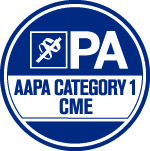- Veronica Watson
Series Overview
This activity will provide current, up to date information on core topics in plastic and reconstructive surgery. The format will consist of lectures with Q and A sessions. The presentations will focus on current updates including data reviews, problem analysis, surgical indications and managing complications. The topics will range from lower extremity reconstruction to head and neck reconstruction.
Global Objectives
- Assess gender affirming patients based on national guidelines
- Manage surgical complications in reconstructive surgery, working collaboratively with the healthcare team
- Identify the indications for lower extremity reconstruction
- Perform facial analysis to choose the correct fascial aesthetic surgery
- Identify the indications for implant vs. autologous reconstruction for reconstruction surgery
Intended Audience
MD/DO, APRN, Physician Assistants
Planning Committee
| Samuel Poore, MD, Chair | Veronica Watson, EdD, Coordinator | Barb Liebhardt, Coordinator | Gretchen Winandy, APNP |
Accreditation
Accreditation Statement
 | In support of improving patient care, the University of Wisconsin–Madison ICEP is jointly accredited by the Accreditation Council for Continuing Medical Education (ACCME), the Accreditation Council for Pharmacy Education (ACPE), and the American Nurses Credentialing Center (ANCC) to provide continuing education for the healthcare team. |
Credit Designation Statements
American Medical Association (AMA)
The University of Wisconsin–Madison ICEP designates this live activity for a maximum of 1 AMA PRA Category 1 Credit™. Physicians should claim only the credit commensurate with the extent of their participation in the activity.
American Nurses Credentialing Center (ANCC)
The University of Wisconsin–Madison ICEP designates this live activity for a maximum of 1 ANCC contact hour.
American Academy of Physician Assistants (AAPA)
 | The University of Wisconsin-Madison ICEP has been authorized by the American Academy of PAs (AAPA) to award AAPA Category 1 CME credit for activities planned in accordance with AAPA CME Criteria. This activity is designated for 1 AAPA Category 1 CME credits. PAs should only claim credit commensurate with the extent of their participation. |
| American Board of Surgery Continuous Certification | |
 | Successful completion of this CME activity enables the learner to earn credit toward the CME requirements of the American Board of Surgery’s Continuous Certification program. It is the CME activity provider's responsibility to submit learner completion information to ACCME for the purpose of granting ABS credit. |
Continuing Education Units
The University of Wisconsin–Madison ICEP, as a member of the University Professional & Continuing Education Association (UPCEA), authorizes this program for 0.1 continuing education units (CEUs) or 1 hour.
POLICY ON FACULTY AND SPONSOR DISCLOSURE
It is the policy of the University of Wisconsin–Madison Interprofessional Continuing Education Partnership (ICEP) to identify, mitigate and disclose all relevant financial relationships with ineligible companies* held by the speakers/presenters, authors, planners, and other persons who may influence content of this accredited continuing education (CE). In addition, speakers, presenters and authors must disclose any planned discussion of unlabeled/unapproved uses of drugs or devices during their presentation. For this accredited continuing education activity, all relevant financial relationships have been mitigated and detailed disclosures are listed below.
* Ineligible companies are those whose primary business is producing, marketing, selling, re-selling, or distributing healthcare products used by or on patients. The ACCME does not consider providers of clinical service directly to patients to be commercial interests.
Detailed disclosures will be available prior to the start of the activity.
Planning Committee Disclosures
COMPETENCIES
ACGME/NURSING
Patient Care and Procedural Skills
Medical Knowledge
Interpersonal and Communication Skills
Provide patient/person-centered care
Employ evidence-based practice
INTERPROFESSIONAL EDUCATION COLLABORATIVE COMPETENCIES
Values/Ethics for Interprofessional Practice
DIVERSITY, EQUITY, AND INCLUSION COMPETENCIES
Engage in Self-Reflection
IP Competence
See above

 Facebook
Facebook X
X LinkedIn
LinkedIn Forward
Forward